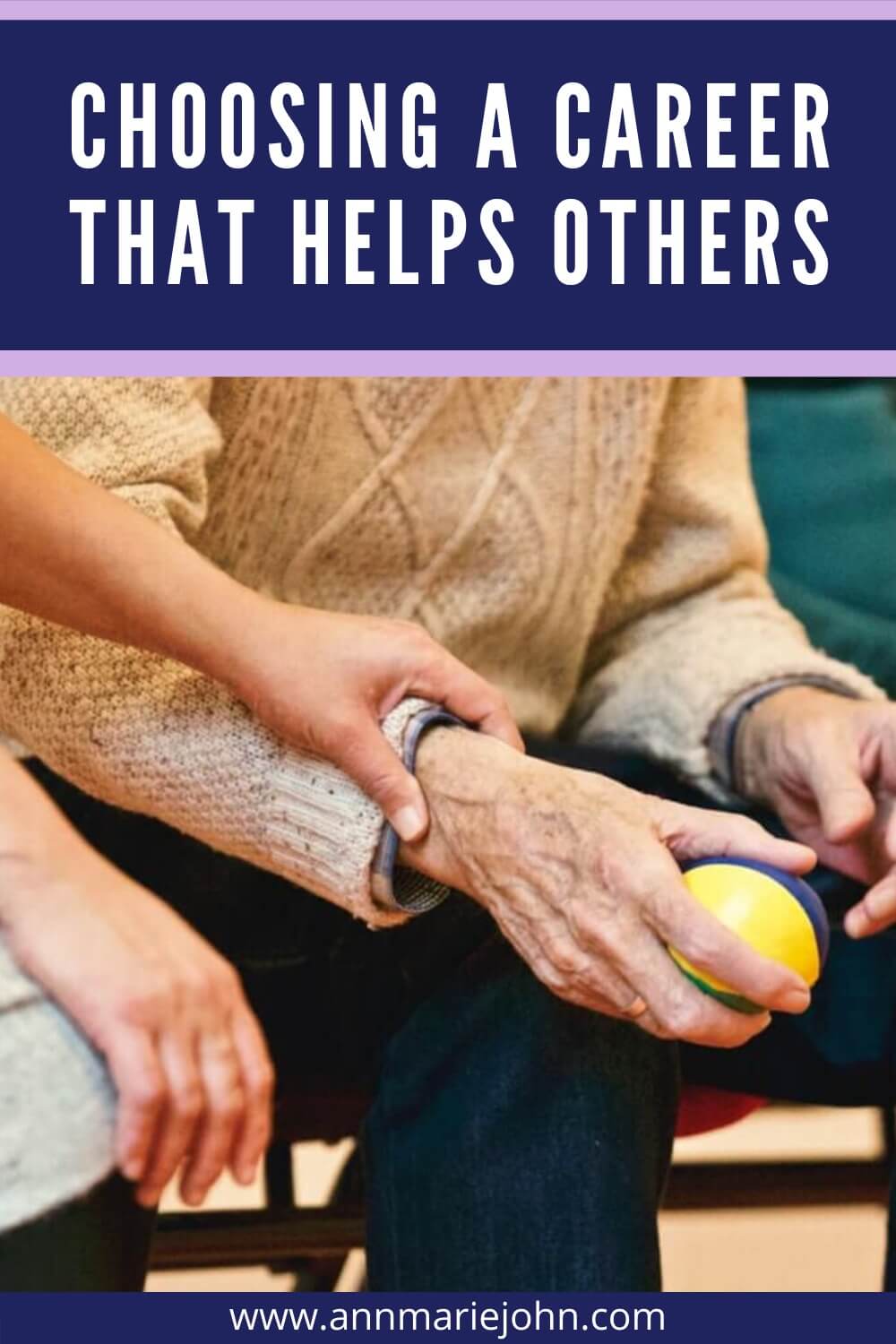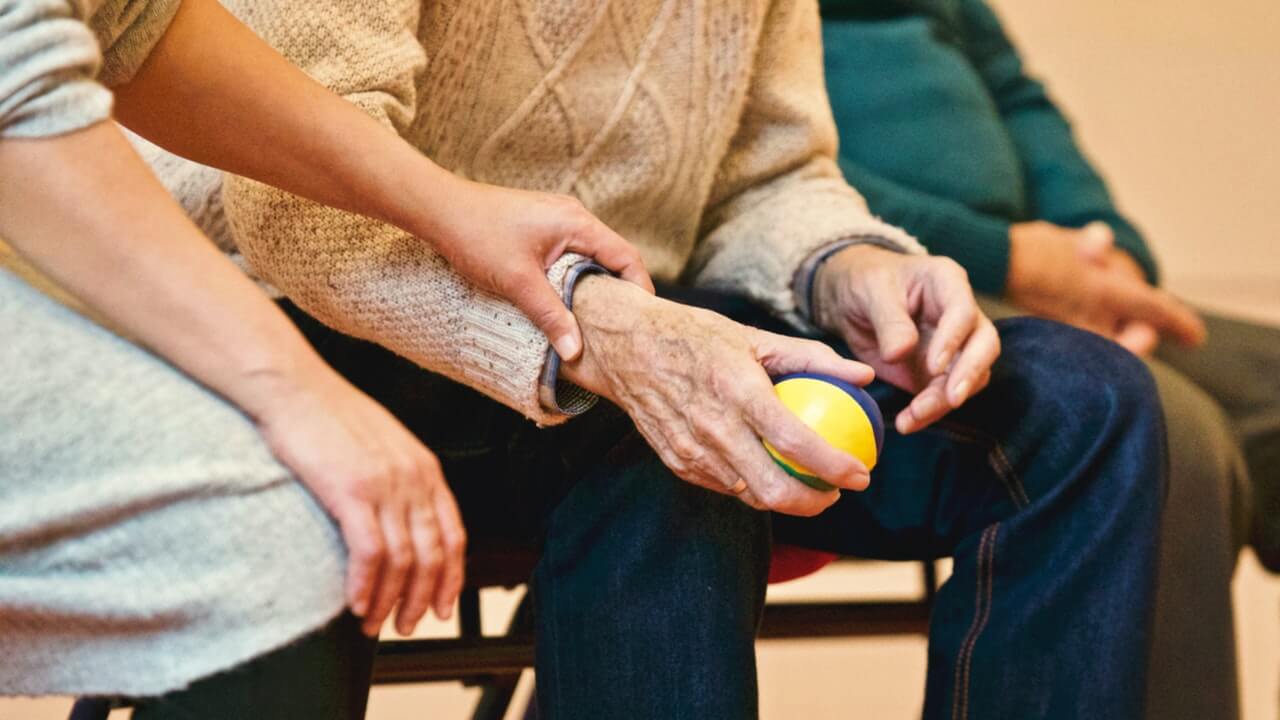
Right now, many of us are changing career paths or considering a change in career paths. Whether that’s because you’ve lost a previous role due to the coronavirus pandemic, or because you’ve simply decided that it’s time for you to pursue a new role that will feel more rewarding and a better use of your time.
Now, there are so many different factors that can play into what will make a good career for you or not. Of course, we all want good pay. The better our pay is, the better quality of life we can provide for ourselves and our loved ones. We’d be able to afford more luxuries, which can prove great in regards to overall lifestyle and wellbeing. But this isn’t the be-all and end-all of our work.
There are other important factors that can come into play too. If you’re going to spend eight hours a day, five days a week doing something, it’s a good idea to make sure it’s something that you enjoy and find rewarding. For some of us, having a career that helps others is an essential. This is the most rewarding thing we can think of! Now, there are various roles out there that help others. But here are a few that you might want to take into consideration!

HEALTHCARE ROLES
Right now, many of us are inspired by healthcare staff around their world. Their efforts have gone to prevent this worldwide pandemic from having even worse effects than it already has had. They’ve saved countless lives. They’ve made seemingly endless numbers of people’s experience with coronavirus and Covid-19 slightly more bearable. They’ve worked hard, and they’re being applauded for it.
You may want to help others in a similar way. Now, there are plenty of different roles within healthcare, and they can vary drastically. But two areas you need to focus on before throwing yourself into this career are the education required for the doors to these roles to be open to you and the emotional elements that inevitably come hand in hand with working with sick or injured individuals.
Education
First, let’s focus on education. Any medical or healthcare role will absolutely require you to undertake and complete extensive education to a high standard. This is entirely understandable. Healthcare workers deal with some of society’s weakest and most vulnerable members. You also bear a lot of responsibility on your shoulders when making potentially life-saving or life-changing decisions about someone’s health and wellbeing and the treatment they require to optimize their chances of recovery.
It’s essential that you do good every single time you’re at work, through every moment of the day. Failure to do so could put someone’s well being at risk. On top of this, you’ll need a thorough, reliable, and in-depth knowledge and understanding of a vast amount of illnesses, how to deal with injuries, and more. All of this goes to explain why degrees in medicine tend to be longer than any other degree within the realm of academia. Most courses will last between six and seven years, and following this, you’ll require further training. Whatever medical role you’re considering, make sure you are fully aware of how long you will have to study for your qualifications and ensure that you are happy to commit to this. If not, this may not be the career for you!
Emotional Elements
Now let’s focus on the emotional elements of medical careers. Caring for the sick and vulnerable most definitely isn’t easy, and there aren’t always going to be happy outcomes. Working in this field, you are bound to witness tragedies, and you’re also highly likely to have some heartbreaking experiences on a regular basis.
Medical professionals working with the elderly, in emergency departments or departments of hospitals for the terminally ill, will likely get the brunt of this and have more tragedy on their hands than a health services manager or general practitioner. But no medical professional is out of bounds to the experience of being surrounded by immense pain and suffering. It can often be a mentally draining and emotionally challenging role. You need to ensure that you can deal with this while maintaining a good bedside manner and professional composure. This will make things easier for patients and their families alike.

REHAB ROLES
Addiction is one of the hardest habits to overcome. Countless people are addicted to something or another. This can range from potentially smaller habits such as excessive social media use and procrastination to potentially life-destroying habits, such as heavy drug use. For the more extreme end of the spectrum, there are rehabilitation centers, which provide addicts of various types with a safe space to wean themselves off their addiction and slowly make their way back to a life without the substance that’s impacting them.
There are countless roles that can be taken in rehabilitation centers. Sure, it may feel difficult to see people going through withdrawal. People pushed to the edge like this may also not be the kindest or most pleasant people to work with, as they’ll be struggling and likely to lash out under the extreme circumstances. But you can rest assured that any role within this setting is helping to change someone’s life for the better.
TEACHING
Education can have a huge impact on people’s lives. It can teach them essential life skills. It can spark passions and interests. It can see them along a path towards qualifications which will help them to secure the job of their dreams someday! Teaching provides people with the tools they need to advance their own lives and take themselves to the places they want to be. So, if you become a teacher of any sort, you’ll likely significantly impact someone’s life for the better through your endowment of knowledge and guidance in the right direction.
There are so many different types of teaching that there’s bound to be something that suits you down to a tee if this is a field you’re interested in working in. You can teach anyone from nursery age to compulsory education, higher education, and even training courses that people might take in their spare time. Decide what age group of people you want to work with – toddlers, children, teenagers, young adults, adults – and you’ll have a better idea of what stage you’d like to teach at. The general rule of thumb is that to teach, you require an undergraduate degree and training. To teach undergraduate students and higher at universities, you will generally require a master’s degree and a Ph.D.
SOCIAL SERVICES
Social services are in place to protect the most vulnerable members of society. If you go into social care work, you may find yourself face to face with intense and unpleasant situations regularly. But it’s essentially your role to manage these situations (making them easier and better for the people involved in them) or to remove vulnerable people from these situations. You can go home each night knowing you’ve definitely made someone’s life somewhat better for them. Your job will generally see you helping people adjust to their life following major life events, helping children who are not receiving the right level of care, and generally doing your utmost to make sure that people are safe in their home environments.
CARER ROLES
Some people require help in their homes or in institutions on a day to day basis. They want to live relatively independently but may struggle with day to day tasks that they need to complete to get by safely and healthily. If you become a carer, you may find yourself working with the elderly, disabled individuals, or individuals who are unwell. Whatever the person’s reason for requiring help, you will be able to provide them with it. If you work in an institution, you may find yourself in an old people’s home, or a respite for individuals with terminal illnesses. Your role could change with each person you work with. But generally speaking, you will find yourself completing tasks like administering medication, helping to clean people, keeping people company, and completing other general tasks.

Of course, there are many other caring roles that are perfect for empathetic individuals out there. These are just a few. But hopefully, they’ll help to get your imagination going and could help you to find the perfect career path for yourself. It really will be rewarding to know that you’re actively making the world a better place each day!
